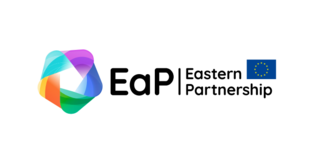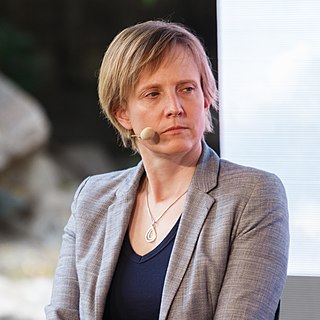
The foreign relations of the Russian Federation is the policy arm of the government of Russia which guides its interactions with other nations, their citizens, and foreign organizations. This article covers the foreign policy of the Russian Federation since the dissolution of the Soviet Union in late 1991. At present, Russia has no diplomatic relations with Ukraine due to its ongoing invasion of Ukraine. Other than Ukraine, Russia also has no diplomatic relations with Georgia, Bhutan, Federated States of Micronesia and Solomon Islands.

The European Union is a geo-political entity covering a large portion of the European continent. It is founded upon numerous treaties and has undergone expansions and secessions that have taken it from six member states to 27, a majority of the states in Europe.

The European Union (EU) has expanded a number of times throughout its history by way of the accession of new member states to the Union. To join the EU, a state needs to fulfil economic and political conditions called the Copenhagen criteria, which require a stable democratic government that respects the rule of law, and its corresponding freedoms and institutions. According to the Maastricht Treaty, each current member state and the European Parliament must agree to any enlargement. The process of enlargement is sometimes referred to as European integration. This term is also used to refer to the intensification of co-operation between EU member states as national governments allow for the gradual harmonisation of national laws.

John Leonard Eatwell, Baron Eatwell, is a British economist who was President of Queens' College, Cambridge, from 1996 to 2020. A former senior advisor to the Labour Party, Lord Eatwell sat in the House of Lords as a non-affiliated peer from 2014 to 2020, before returning to the Labour bench.
Archibald Haworth Brown, is a British political scientist. In 2005, he became an emeritus professor of politics at the University of Oxford and an emeritus fellow of St Antony's College, Oxford, where he served as a professor of politics and director of St Antony's Russian and East European Centre. He has written widely on Soviet and Russian politics, on communist politics more generally, on the Cold War, and on political leadership.

Ruth Wodak is an Austrian linguist, who is Emeritus Distinguished Professor and Chair in Discourse Studies in the Department of Linguistics and English Language at Lancaster University and Professor in Linguistics at the University of Vienna.

The Eastern Partnership (EaP) is a joint initiative of the European Union, together with its member states, and six Eastern European countries. The EaP framework governs the EU's relationship with the post-Soviet states of Armenia, Azerbaijan, Belarus, Georgia, Moldova, and Ukraine. The EaP is intended to provide a forum for discussions regarding trade, economic strategy, travel agreements, and other issues between the EU and its Eastern European neighbours. It also aims at building a common area of shared values of democracy, prosperity, stability, and increased cooperation. The project was initiated by Poland and a subsequent proposal was prepared in co-operation with Sweden. It was presented by the foreign ministers of Poland and Sweden at the EU's General Affairs and External Relations Council in Brussels on 26 May 2008. The Eastern Partnership was inaugurated by the EU in Prague, Czech Republic on 7 May 2009.
The foreign policy of Vladimir Putin concerns the policies of the Russian Federation's president Vladimir Putin with respect to other nations. He has held the office of the President previously from 2000 to 2008, and reassumed power again in 2012 and has been President since.

Lúcio Vinhas de Souza is a Brazilian-Portuguese economist. His main research areas are global macroeconomics, development economics, monetary economics, finance and country risk, with extensive work experience at the developed economies of the European Union and the US, and in several emerging market regions, from the former Soviet Union to East Asia, Africa and Latin America.

Taras Kuzio is a Professor of Political Science at the National University of Kyiv-Mohyla Academy. His area of study is Russian and Ukrainian political, economic and security affairs.
Bernhard Ebbinghaus is a German sociologist and comparative social policy expert at the University of Mannheim.

Relations between the European Union (EU) and the United Kingdom of Great Britain and Northern Ireland (UK) are governed, since 1 January 2021, by the EU–UK Trade and Cooperation Agreement (TCA).

Tanja A. Börzel is a German political scientist. Her research and teaching focus on the fields of European Integration, Governance, and Diffusion. She is professor of Political Science at the Otto-Suhr-Institute of Political Science of Freie Universität Berlin, director of the Center for European Integration, and holder of the Jean Monnet Chair for European Integration from 2006 until 2009. Currently, she is department chair of the Otto-Suhr-Institute of Political Science.
Kimberly Marten is an author and scholar specializing in international security, foreign policy, Russia, and environmental politics. She held the 5-year-term Ann Whitney Olin Professorship of Political Science at Barnard College from 2013 to 2018, and then returned to chair the Barnard Political Science Department for a second time from 2018-2021. She was the director of the Program on U.S.-Russia Relations at Columbia University’s Harriman Institute from 2015 to 2019, and the Harriman Institute published a profile of her career. She is a member of the Council on Foreign Relations and the International Institute for Strategic Studies, and a frequent media commentator.

Dmitri Vitalyevich Trenin is a member of Russia’s Foreign and Defence Policy Council. He was the director of the Carnegie Moscow Center, a Russian think tank. A former colonel of Russian military intelligence, Trenin served for 21 years in the Soviet Army and Russian Ground Forces, before joining Carnegie in 1994.
Angela Wigger is a political economist at the Political Science department at the Radboud University in the Netherlands.

Gwendolyn Sasse is professor of comparative politics at Nuffield College, University of Oxford. Sasse has research interests in post-communist transitions; comparative democratisation; ethnic conflicts; international conditionality; national minorities; the political behaviour of migrants; diaspora politics; and the political in contemporary art. Since 1 October 2016 Sasse has been the director of the Centre for East European and International Studies (ZOiS) in Berlin.
James Raymond Hughes is professor of comparative politics at the London School of Economics (LSE). Hughes' research interests relate to political violence and terrorism, secession, national and ethnic conflict in the former Soviet Union, the Balkans, and Northern Ireland.
Euromaidan Press (EP) is an English-language news website launched in 2014 by contributors from Ukraine, sponsored by reader contributions and the International Renaissance Foundation. It shares its name with the Euromaidan movement in Ukraine. Registered as a non-governmental organization, EP's stated goal is to provide English-language material to those interested in Ukrainian topics such as business issues, the economy, military conflict, and tourism.

Heather Grabbe is Senior Fellow at the think-tank Bruegel in Brussels, Belgium. Since 2021, she is Visiting Professor at University College London and at Katholieke Universiteit Leuven. She was previously the director of the Open Society European Policy Institute.












